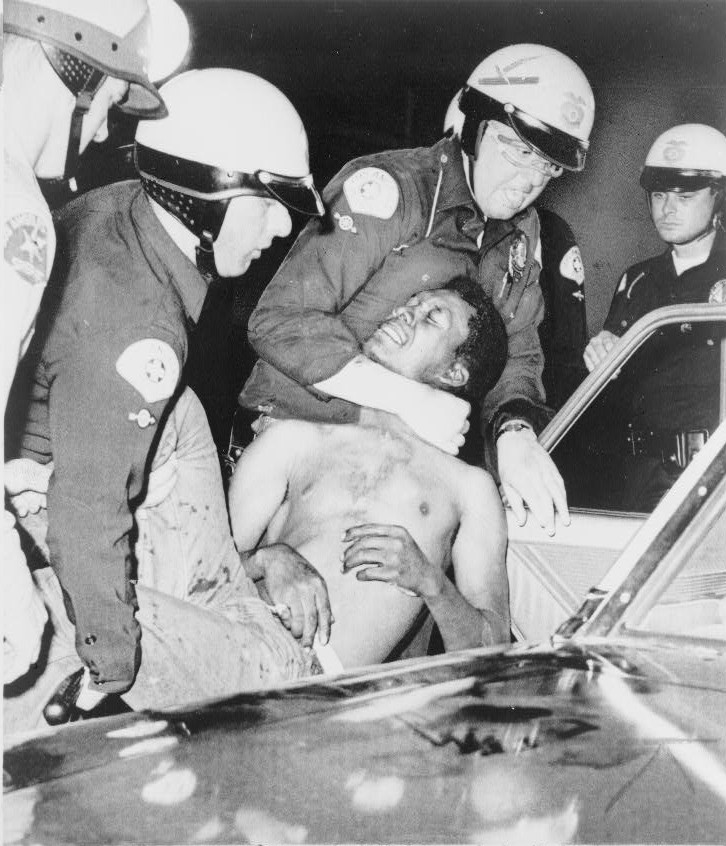-
December 1990
Volume41Issue8

Under the chairmanship of the former CIA director John McCone, the Watts Commission delivered its report on schedule in early December. The eight-member commission had been appointed by California’s governor Edmund G. Brown to investigate the causes of violence following six days and nights of arson, gunfire, and looting that had torn through the largely black Los Angeles suburb the August before. The rioting had dominated an area of 46.5 miles overall, killing thirtyfive people and injuring more than a thousand.
The report described the six furious days as “an explosion—a formless, quite senseless, all but hopeless violent protest.” Rumors of police brutality in the arrest of Marquette Frye, which had produced the initial, outraged crowds, could not be verified, concluded the commission, drawing on nearly two million words of testimony.
Two chants from the riots—“Get whitey” and “Burn, baby, burn”—became ominous catchphrases in the national press, far better known than any of the conditions leading to the violence. Along with the Harlem riots the previous year, the events in Watts exposed the fragility of racial relations above the Mason-Dixon line as well as the profound anger of whole forgotten regions in the North.

